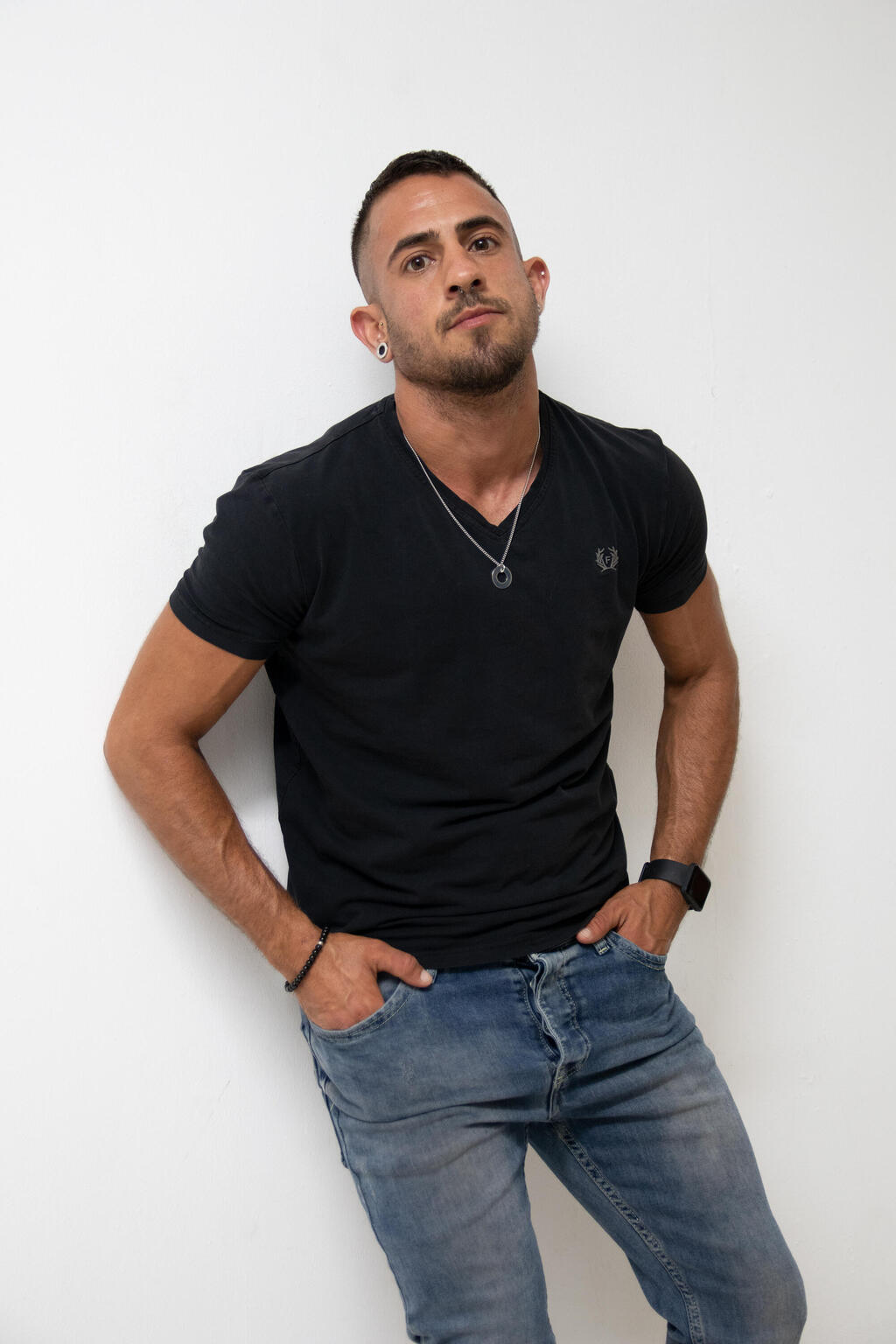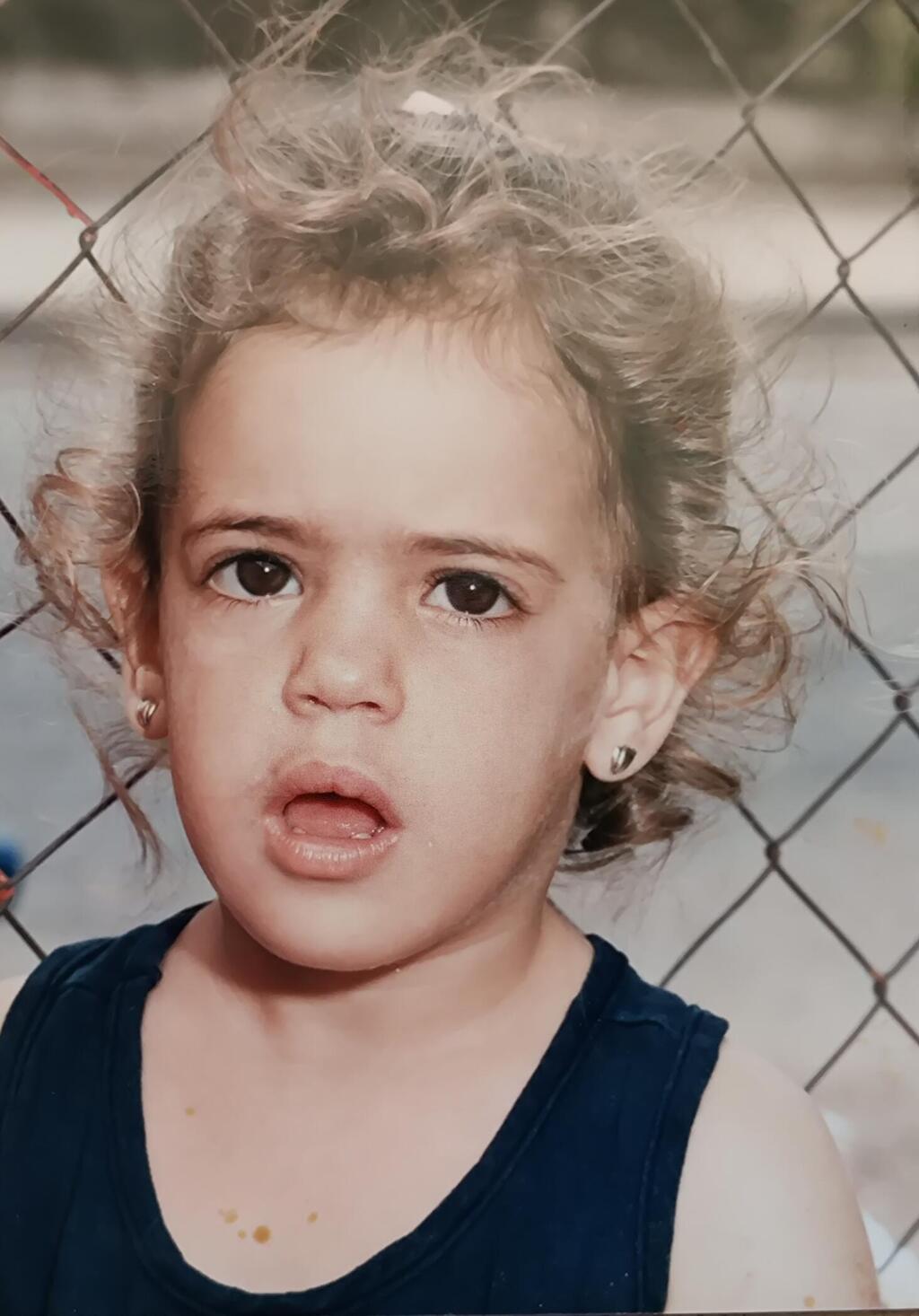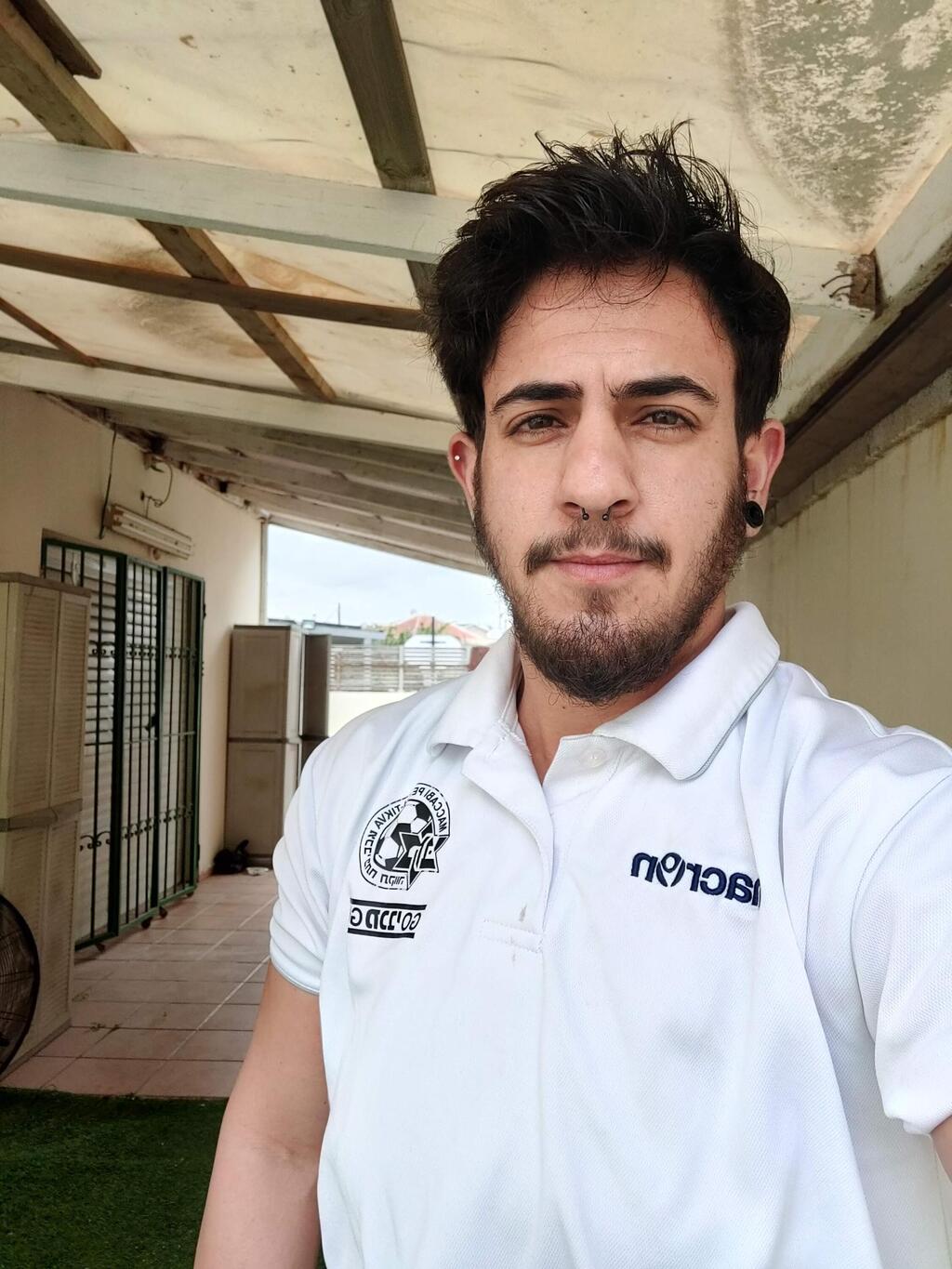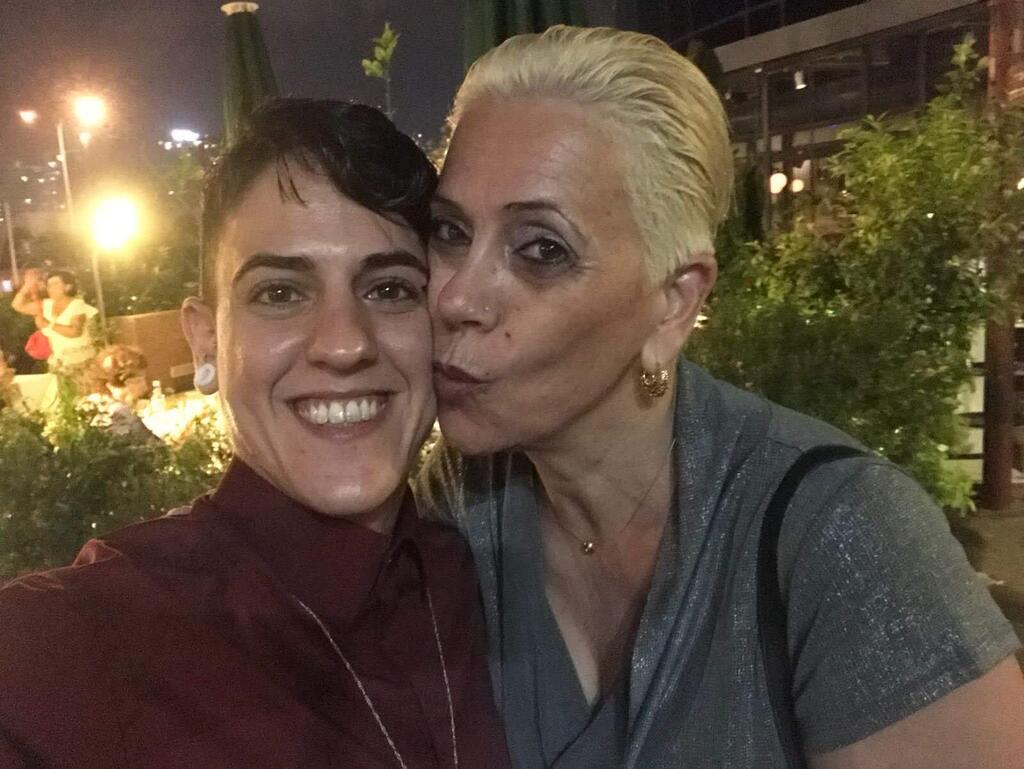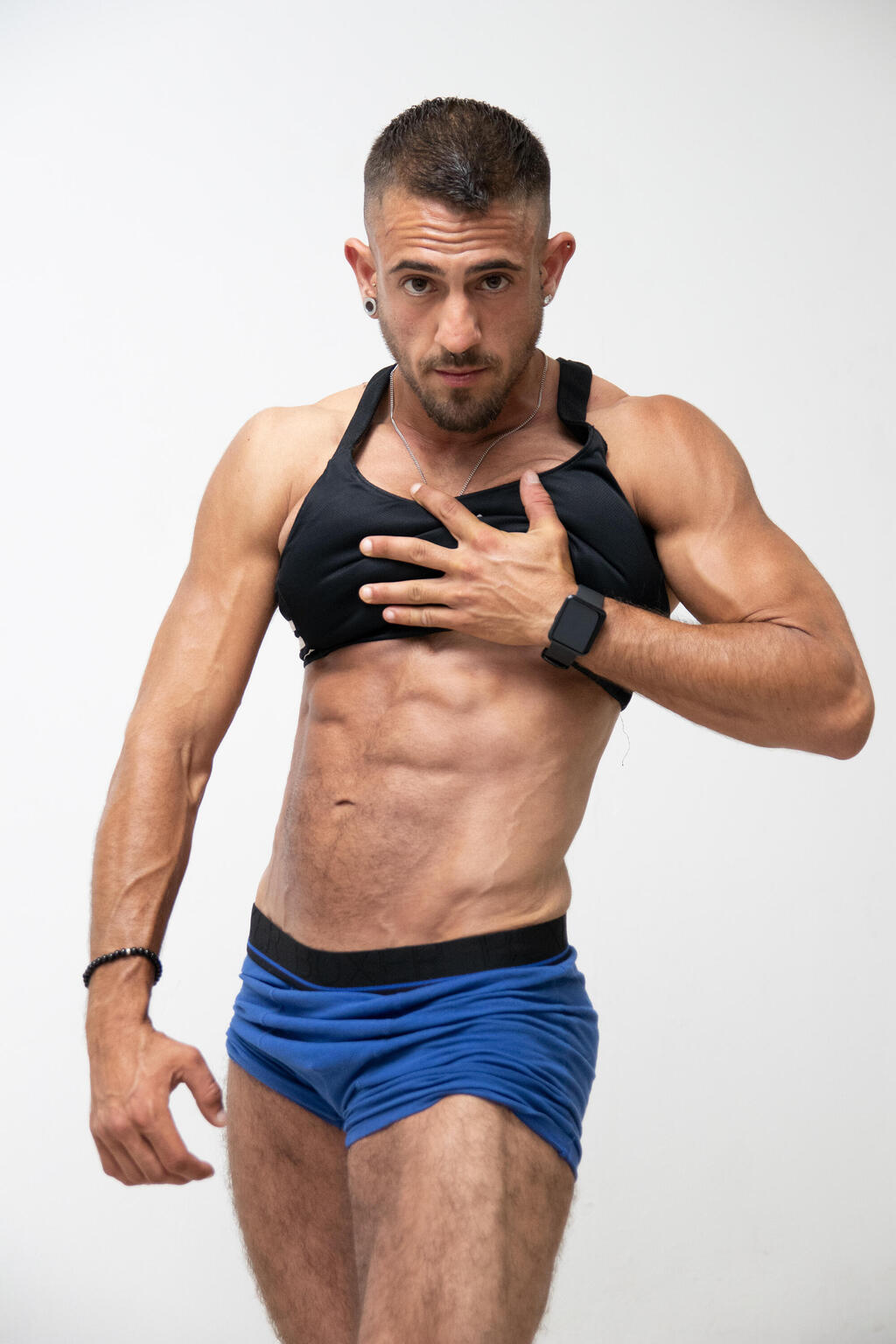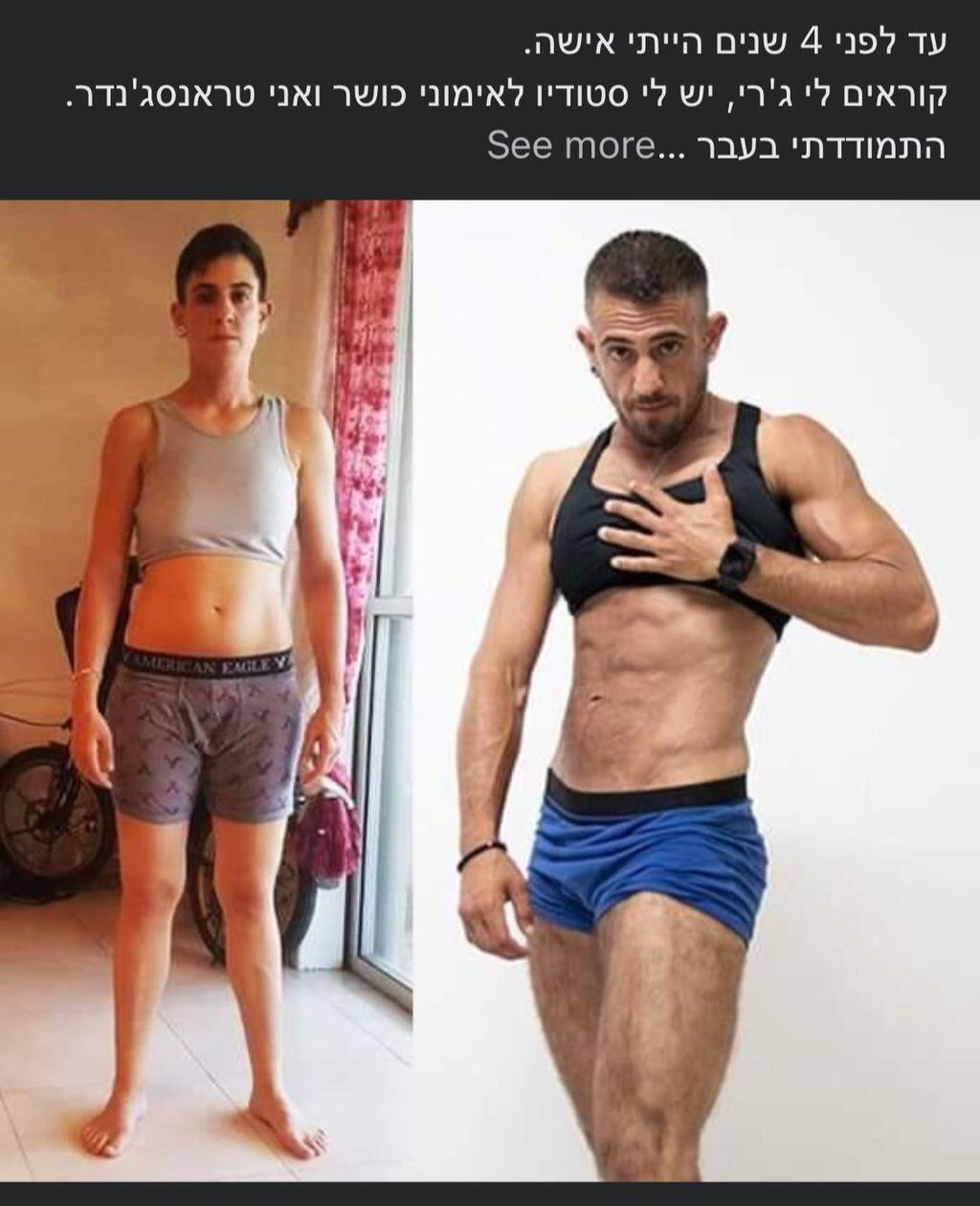Getting your Trinity Audio player ready...
Jerry-Lee Onor, 34, spent 30 years at war with himself, harboring a secret he didn’t even share with those closest to him. Onor always felt a stranger in his own body. Although he was born a girl, he never felt he belonged in either his body or in his gender.
Related stories:
From an early age, he was in daily conflict with the girl in the mirror, from whom he’s been attempting to escape his whole life. Forever trying to keep his head above water, Onor became anorexic, suffered severe depression, leading to a dangerous downward spiral.
It all looks very different now. After beginning a sex change, he’s putting troubled times behind him. Onor now owns a fitness studio in Rishon LeZion and can take pride in his achievements. He posted his personal story on Facebook in July 2022, attracting a great deal of interest, drawing attention to problems facing Israel’s transgender community.
“By first grade, I already felt that there was something strange within me,” Onor tells Ynet. “I couldn’t put my finger on it. I was always hanging out with the boys. Others always saw me that way. I’d play football with the boys and chase after the prettiest girl in class. I always looked like a boy – my hair, my clothes – everything. That’s the way it was for years.”
As it started becoming clearer to him at the age of eight, his own battles with himself also set in. “At night, I’d kneel and pray to God to switch my body with that of the good-looking boy in my class – the one who always dated the prettiest girls.”
He recalls: “I realized by then that I wasn’t myself and that I wanted to be a boy, but I didn’t even know that there was such a thing as transgender.”
Onor didn’t dare share his secret. As a teenager, he swept his feelings under the rug. “It was more comfortable for me to be the Lesbian in the group. I didn’t make any kind of change as I was afraid of what the results might be. I had very little self-confidence and I did a lot of stupid stuff. I had a lot of support from my family though. They never made me feel like an odd duck. They’ve always been very supportive.”
The conflict escalated over the years, leading to self-destructive behavior including eating disorders. “I had always been a chubby girl and I always wanted to be thinner. To be more precise, I wanted the muscular body of that good-looking boy at school. At some stage, I decided that was it – I started a diet and I started working out. For a whole year, I was eating almost nothing and doing lots of sports. I shed the pounds. From 80kg (176 lbs), I dropped to a shocking 39kg (86 lbs).
Onor ended up as an outpatient in the Eating Disorders Unit in the hospital. “They made sure you ate and didn’t self-harm. I’d go to the hospital every day and go home in the afternoon, but it didn’t really work for me.”
“I was a rebellious girl. I didn’t like being told what to do. When I was rebellious and didn’t eat, I’d be hospitalized for extended periods, hooked up to a nasogastric (NG) tube. I’d pour the food they brought me through the tube, and they couldn’t understand why I wasn’t putting on weight. I hated everyone. I then realized that if I didn’t eat, I wouldn’t get out of there. I got back to a sensible weight, got out of the hospital, and quickly got back to my original weight.”
His hopes of time at home providing a chance to get back on his feet were quickly dashed. His own self-loathing found new, darker outlets.
"I had new strengths. I put aside all the food obsession and started doing the worst things imaginable. I was hurting and I didn’t know how to express it. My self-confidence was very low, and I did a lot of stupid stuff, things bad kids do: I’d wander the streets. I was violent. I’d use my strength, hurting people who were weaker than me. At the time, I felt I like being bad – but it was really all about my own pain and frustration.”
At the age of 18, he found himself very much alone when the IDF wouldn’t draft him at the age of 18. After a period of serious introspection, he started regretting his own behavior. A chance meeting with a girl whom he had hurt got him thinking about all the terrible things he had done which led her to seek psychological counseling. “That broke me,” Onor recalls.
How did you react?
“I fell into a deep depression. I cut myself off from my friends and the horrific environment I’d been in during my teenage years. I felt terrible. I locked myself in my room. I had no structure. When I have no structure, I lose it.”
“I didn’t leave the house at all for four years. I didn’t want to go outside - lest I harm someone. I was totally cut off from everything. I had no phone and I had no friends. I was on my own all day long. I’d write and draw. That’s how I’d express myself and heal the wounds and the pain I’d caused others.”
Four years later, aged 22, he decided to get himself together. “I’d gained weight. As I’d been anorexic, I loathed myself. I felt I was worth nothing. I told myself that I either ended it all or pulled myself up.“
"I didn’t want anyone to see me. I was terrified that anyone might see what I looked like. When my self-esteem was especially low, I’d spend an hour and a half just running up and down the stairs at home”
“I’d always loved sport. I bought some weights and a multi trainer I’d spend all day working out in my small room. At nighttime or early in the morning, I’d go out to do some aerobics. I didn’t want anyone to see me. I was terrified that anyone might see what I looked like. When my self-esteem was especially low, I’d spend an hour and a half just running up and down the stairs at home.”
Things started looking up. Onor got himself back to a decent weight and his family moved to a larger apartment and he started feeling a fresh kind of energy. “I just felt a different energy. My mother got me a job at a supermarket. I began working and meeting people. I wasn’t feeling depressed anymore. I started to look a bit more masculine, so I felt better about myself. The sport got me out of anorexia. The sport balanced it out. It’s not that I found a drug to cure anorexia. It’s something that’ll always be there, but you find a way to balance it out. I now know how to silence the voices.”
Although things started sorting themselves out, Onor’s struggle with himself was far from over. This new era brought on new searches for his identity “I was more masculine. I had my hair cut short. I looked more or less like I wanted to, but I still wasn’t myself” he tells us.
To address his inner turmoil, he started treatment at the Center for Personal Development. “The treatment there opened up a whole new world for me. I started accepting who I was and understanding why I was feeling the way I was feeling. That’s what saved me. At the age of 27, I knew that I wasn’t going to carry on living like that. As I couldn’t be myself, I kept thinking about dying. This time I wasn’t going to give up. I hadn’t made it this far to just give up.”
The TV miniseries “Transkids” was on television at the time. Onor saw this as his opportunity to finally share his secret with his mother. “The son of a friend of my mother’s was featured on Transkids – so that was my chance to watch the show together with my mother. I very gradually opened the conversation. I asked her questions. I wanted to see how she’d feel if I were to tell her something along those lines.”
“Her response was rather unpleasant. Her eyes went heavy, but I knew I couldn’t let it go. It took me a little longer to prepare myself and I finally told her that I was like that too. She naturally accepted me. Although I saw that it was hard for her, it didn’t stop me. I decided that I had to try living the life I hadn’t been living for 30 years.”
Now that he was finally content with himself, he had to deal with a complex process of gender reassignment. He knew very little about it at first. “I started the process on my own. I didn’t know there was a gender committee at Tel Hashomer Hospital.” He started using forbidden substances that he got from people he met at the gym – but this unsupervised usage quickly proved a bad idea.
“I wanted to be more masculine, so I started taking women’s anabolic steroids. My body completely changed. I had no idea of the extent of the side effects. I just wanted a more muscular, masculine look. But I started looking like a man. Luckily, around that time, I met my personal trainer. He helped me build myself up. He helped me change my perspective on working out and about life in general. Working out became my therapy.”
He continued using forbidden substances. He developed acne that required facial treatment by a cosmetologist. He’ll never forget his first visit to the beauty salon. “When I got to the beauty salon for my first treatment, as I walked through the door – the cosmetologist addressed me in the masculine form. I was shocked. I’d never told anyone that I wanted to be a boy. It was a bit frightening at first.“
“We started talking and it quickly turned into a therapy session. Each time I’d go to see her, she’d encourage me to be who I really am and refused to address me in the feminine form. She said ‘I’m not feeling even a tiny bit of woman out of you. You’re the manliest man I’ve met.’ I started believing it. It began sinking in – but it still scared me. I started growing facial hair. My mother was the only one who knew what was going on.”
Further affirmation came in an emotional therapy session in a women’s circle he attended via the Center for Personal Development. “I had a tiny bit of a beard, and I looked a little different, more masculine. My voice was now deeper. At this therapy session, the moderator also addressed me using the masculine form. She was the second woman to do that.” He continues: “That evening, all the women in the group addressed me in the feminine form. It felt like it was a therapy evening just for me. The moderator said to me: ‘Tomorrow morning, you’re getting up and you’re shaving.’ That’s exactly what I did. I started telling everyone and I began the transition process.
That’s not an easy step to take. How did people react?
“A lot of people said stuff like ‘why do need to do it? You’re a man anyway- and a good-looking one.” But that’s not how it felt. I didn’t see myself as a man. I didn’t like myself. My trainer was supportive. I’ve been through a lot over the past four years, and I’ve become much stronger. To change your gender, you have to change a lot of stuff in your head.”
What kind of things do you have to change?
“Behavior is different. You can’t hug your girlfriends. There’s a certain distance between men and women. There are things you can’t do anymore. You have to work at it. I still find I talk to myself in my head in the feminine form.”
Do you feel more complete now?
“Yes, but the process isn’t over. I still have female organs. I have female breasts, which gets me down. I’m saving up for a private operation. I’m very insecure about my body. It's not easy. It’s a daily struggle. Think about it: You’re a man walking down the road with women’s breasts. It doesn’t feel good. I think I’ll feel completely free with myself after the operation. I now have an organ that annoys me. But I’m spiritually and emotionally much stronger now. I just want to spread goodness.”
Onor seems excited as he talks openly about the great changes he’s gone through. He says that working out helped him when at his lowest points and that it was easy for him to choose fitness as a profession. For several years, he’s been managing a home fitness studio in Rishon LeZion - helping people achieve their fitness goals.”
“When I started using substances, I didn’t really know what to do with my body. I suffered from a series of side-affects including hair loss. That was all before I met my trainer. I decided to open a gym and teach others what I’ve learned – how to change habits and become both physically and emotionally stronger.”
“I always knew that I wanted to help people and sport and fitness are part of it. It’s something I love and I’m good at it. The studio is technically mine and my trainer does the training. I deal with our customers.”
He adds: “The personal connection is important. I know that sport and working out isn’t just about sport. It’s about your soul. You need to be mentally strong. It’s not just about losing weight. There’s a lot more going on here. I deal with a lot of complicated cases because I’m a complicated case. I’ve acquired the gift of being able to help people with anorexia or people from the transgender community. I try to help them feel content with their bodies. It’s very hard work.”
Watch: Jerry Onor's training routine
Although the transgender community has received public awareness in recent years, racism and discrimination are still very much present. Negative talkbacks following his posting don’t bother Onor who feels that this too is part of the journey.
“I haven’t had to deal with a lot of negative comments, primarily because I don’t talk about it. I don’t just put it out there. When people connect with me and I feel comfortable enough, I’ll tell them. By then I don’t care because they’ve gotten to know me.”
“When I wrote that Facebook post, I knew there would be negative comments. I just try to get past it. It’s important for me to get my message across and help people who feel life is weighing them down. I sometimes start reading the comments and wonder what genius piece of wisdom I’ll see today...”
Do you believe change is coming soon or that there’s a long way to go?
“We clearly have a long road ahead of us, but I think it’s important that there should be a voice speaking out. If I need to be that voice, I’ll be that voice. I’ll spread the word. I’ll bring things out into the light. That’s what I was doing in that Facebook post. I want to send hope to anyone who feels they’re in the dark. I’ll do everything I can to spread light.”
Where do you see yourself a year from now?
“Wow. That’s a tough question. I don’t want to say in the studio, but I do see myself managing a center helping people through sports. I hope to be embraced by light from all directions. I want to feel complete. I want to feel peace both on the outside and within.”


